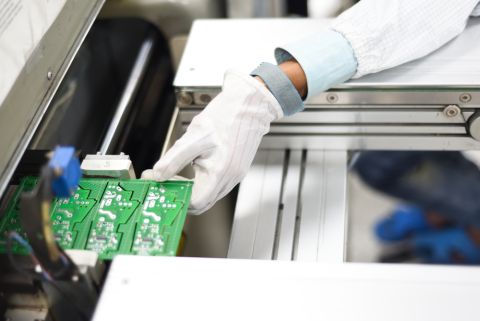New Tariffs on China: A Summary of the Upcoming Section 301 Tariff Changes

In an attempt to level the playing field for American businesses and workers, the Biden administration has slapped new tariffs on an array of Chinese imports, imposed under Section 301 of the Trade Act of 1974. Following a four-year review of Section 301 trade actions, the United States Trade Representative (USTR) issued a Federal Register Notice (FRN) detailing the conclusion of the statutory four-year review.
- Additional US tariffs have been announced on Chinese-origin goods
- Some new and increased tariffs are to be imposed as of 1 August 2024
- More information is expected on specific procedures to request exclusions
- Companies importing affected goods from China will want to evaluate the potential impact of the increased duties and explore potential mitigation strategies
- The USTR is encouraging comments through its web portal until 28 June 2024, at 11:59 p.m. EST.
In revising the Section 301 tariffs, the Biden administration is targeting industries it believes are a threat to America’s strategic competitiveness and national security. "American workers can out-work and out-compete anyone as long as the competition is fair, but for too long, it hasn't been fair," said Biden. "We're not going to let China flood our market."
The new measures will impact $18 billion in imported goods, the White House stated, including across strategic sectors such as steel and aluminum, semiconductors, electric vehicles, batteries, critical minerals, solar cells, ship-to-shore cranes, and medical products.
Biden will maintain tariffs previously put in place by the Trump administration while increasing others, including doubling the duties on imported semiconductors from 25% to 50%. EV duties were also heavily impacted, quadrupling from 25% to 100%. More semiconductor tariffs are expected to follow in 2025 and 2026.

The Trade Gap and the Fight Against Unfair Practices
According to the U.S. Census Bureau, in 2023, the United States imported $427 billion in goods from China while exporting only $148 billion worth—a significant trade gap that has persisted for decades, heavily promoted by China’s unfair policies and practices.
In a report issued on May 14, 2024, the Trade Representative found that the People’s Republic of China (PRC) has not eliminated its technology transfer-related acts, policies, and practices, which continue to impose a burden or restriction on U.S. commerce.
"Instead of pursuing fundamental reform, (China) has persisted, and in some cases become aggressive, including through cyber intrusions and cyber theft, in its attempts to acquire and absorb foreign technology, which further burden or restrict U.S. commerce," the U.S. Trade Representative's (USTR) Office said in a statement.

The US’s capacity for manufacturing semiconductors domestically has been greatly reduced by disinvestment and offshoring. Investing nearly $53 billion through the CHIPS and Science Act (including a 25% investment tax credit for semiconductor companies and $39 billion in direct incentives to build, modernize, and expand CHIP fabs), President Biden hopes to counteract this. Increases in tariffs on semiconductors further support the long-term success of these initiatives.
The Office of the USTR Report showed that while previously imposed tariffs had minimal impacts on economy-wide prices and employment, they had successfully contributed toward reducing U.S. imports of goods from China and increasing imports from alternate sources, thereby “potentially supporting” U.S. supply chain diversification and resilience.
The USITC Report estimates the Section 301 duties led to a 13 percent decline in the value of U.S. imports from China in industries affected by the Section 301 duties and generated increases in imports from sources other than China by 2021, ranging from 6.0 percent for computer equipment to 35.4 percent for audio and visual equipment.
What’s Affected: A Summary of Changes
As part of the much-anticipated tariff update, Biden will increase tariffs on EVs from 25% to 100%, bringing total duties to 102.5%, from 7.5% to 25% on lithium-ion EV batteries and other battery parts and from 25% to 50% on photovoltaic cells used to make solar panels. Some critical minerals, such as natural graphite, will have tariffs raised from zero to 25%.
Summary of Changes to Section 301 Tariffs on Chinese-Origin Goods
|
Chinese-origin goods subject to additional tariffs |
Current tariffs |
Effective dates for increasing tariffs |
Overview of impacted |
|
Battery parts (non-lithium-ion batteries) |
7.50% |
Increase rate to 25% on 1 Aug 2024 |
8507 |
|
Electric vehicles |
25% |
Increase rate to 100% on 1 Aug 2024 |
8702 and 8703 |
|
Facemasks |
0% |
Increase rate to 25% on 1 Aug 2024 |
6307 |
|
Lithium-ion electrical vehicle batteries |
7.50% |
Increase rate to 25% on 1 Aug 2024 |
8507 |
|
Lithium-ion non-electrical vehicle batteries |
7.50% |
Increase rate to 25% on 1 Jan 2026 |
8507 |
|
Medical gloves |
7.50% |
Increase rate to 25% on 1 Jan 2026 |
4015 |
|
Natural graphite |
0% |
Increase rate to 25% on 1 Jan 2026 |
2504 |
|
Other critical minerals |
0% |
Increase rate to 25% on 1 Aug 2024 |
2602, 2605, 2606, 2608, |
|
Permanent magnets |
0% |
Increase rate to 25% on 1 Jan 2026 |
8505 |
|
Semiconductors |
25% |
Increase rate to 50% on 1 Jan 2025 |
8541 and 8542 |
|
Ship-to-shore cranes |
0% |
Increase rate to 25% on 1 Aug 2024 |
8426 |
|
Solar cells (whether or not assembled into modules) |
25% |
Increase rate to 50% on 1 Aug 2024 |
8541 |
|
Steel and aluminum products |
0% — 7.5% |
Increase rate to 25% on 1 Aug 2024 |
7206 through 7306 and 7601 through 7609 |
|
Syringes and needles |
0% |
Increase rate to 50% on 1 Aug 2024 |
9018 and 9013 |
Source: EY
In addition to its tariff adjustments, the USTR recommends: (1) allocating additional funds to U.S. Customs and Border Protection for increased enforcement of Section 301 actions and combat evasion of Section 301 Duties; (2) promoting greater private sector awareness, cooperation and action between private companies and government authorities to identify risks and vulnerabilities in cyber networks and prevent state-sponsored technology theft and cyber intrusions; (3) assessment of how to reduce exposure to China’s technology transfer-related acts, policies, and practices and how to strengthen the resilience of America’s supply chains through further U.S. supply chain diversification.
Critically, the USTR also recommended an exclusion process targeting machinery used in domestic manufacturing. To help support investment in U.S. solar manufacturing, the Trade Representative also proposed 19 temporary exclusions for certain solar manufacturing equipment.
The exclusion process enables interested parties to petition for an exemption from the Section 301 tariff increases for specific imported products, generally for a defined period of time.









